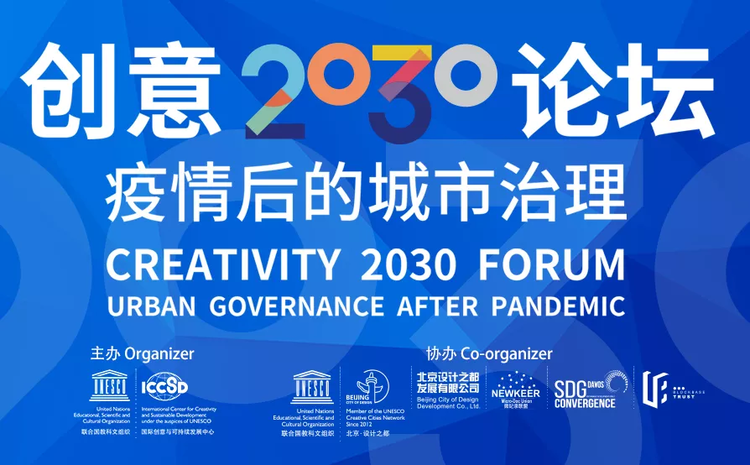
Collection of "Creativity 2030 Forum"
Recently, an online activity of "Creativity 2030 Forum-'Urban Governance after Pandemic' " held by International Center for Creativity and Sustainable Development under the auspices of UNESCO (hereinafter referred to as ICCSD) came to a successful end. During the event, eighteen scholars at home and abroad had heated discussions and in-depth exchanges on the application of new science and technology, urban planning and community building, cultural industry, and exchanges among cities. They made constructive suggestions and expressed innovative opinions on the urban governance after the pandemic, which provided useful experience for sustainable urban development.
"The Creativity 2030 Forum" is an annual key event of ICCSD, focusing on topical issues in the field of creativity and sustainability. It provides interaction, case sharing and joint action planning for the future for participating cities, business leaders and innovators. Xiao Lan, Executive Director of ICCSD, made an opening speech at the forum. He said that it is of great significance to hold the forum to focus on urban governance and discuss the new development model, new development space and new development direction of future urban governance in the context of sustainable development; the event will nurture wisdom, advance practices and help people live a better life after the pandemic.
Experts at Home and Abroad
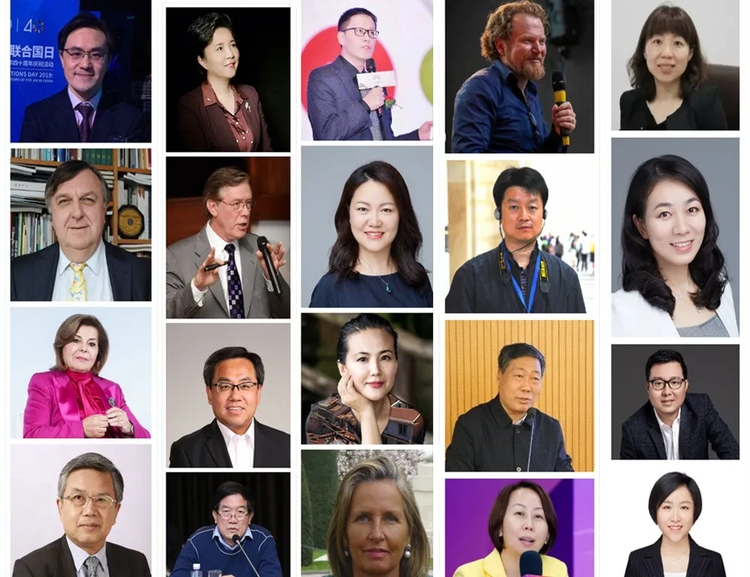
1 Post-Pandemic Era: Cooperation, Communication and Innovation
How do countries cope with challenges and continue to cooperate with each other in the context of the pandemic? Both Hans d'Orville, Chairman of Advisory Committee of ICCSD, Former Assistant Director-General for Strategic Planning of UNESCO and Mehri Madarshahi, Member of the Advisory Committee of ICCSD, President of Global Cultural Networks agreed that the developments of economy, society and culture in many countries are influenced by COVID-19. New strategies should be made. New forms of sports and cultural activities should be back on track for stimulating the economy. They call on countries to reposition 17 sustainable development goals which are supposed to be life-saving campaigns applicable to the world, feasible and containing all life forms. Instead of protectionism, countries should enhance international cooperation in economic recovery. In the meantime, they should explore new ways to accumulate wisdom for urban development after the pandemic.
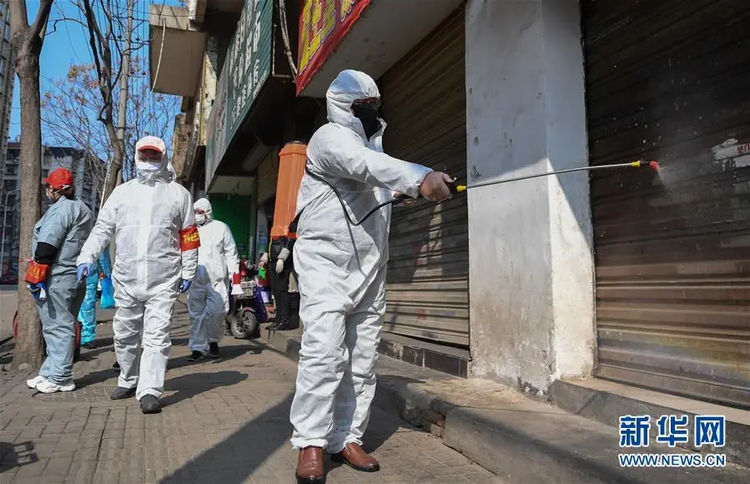
As for international cooperation, communication and collaboration among sister cities are of crucial significance. Li Xinyu, Vice President of China International Council for the Promotion of Multinational Corporations (CICPMC), and expert for the Beijing International Communication Center, said that sister cities play a vital role in cultural exchanges, bilateral friendship and economic development. New urban science and technology emerges during the pandemic, such as online classes and online medical treatment. She stated that new technology brought new models of urban governance, which inspired creative culture. Creative cities and sister cities could be better combined in concepts. Their exchanges would promote the development of the cultural industry and communication among cities.

What changes have taken place in the cultural and creative industries after the pandemic?Zhang Xiaoming,Vice Director of China National Center for Culture Studies of Chinese Academy of Social Sciences, and Xiang Yong,Vice President of Institute for Cultural Industries in Peking University, thought that digital technology would be crucial for the cultural industry to get rid of the influence brought by the pandemic.It would also be a new direction of development of the cultural industry in the future. During the outbreak,the cultural industry has undergone a transformation, in which creativity is ubiquitous. 5G,big data, AI and block chain will fundamentally change the cultural and creative industries.How can countries utilize creativity during the building of urban brands? Wen Chunying, Vice Director of the Asia Media Research Center in Communication University of China, suggested that creativity could raise a city's reputation and enhance its influence. The pandemic might affect people's cognition for urban governance.However, people's cognition for the industrial advantages of the city won't be changed. The experience of fighting against the pandemic might become special symbols of the city in the future.
2 Science and Technology Leading Urban Planning and Governance after Pandemic
From the perspective of urban planning, emergency equipment should be improved in city branding, community governance and property management after the pandemic. Many experts point out that science and technology are critical for urban construction. Hans said that technology is a key factor for building smart cities. It is of great importance for us to strengthen urban defense and establish smart cities through technology. Gong Ke, President of World Federation of Engineering Organizations and Chairman of the Academic Committee of Nankai University, explained his opinion by three key words: "people, intelligence and response". He said, both towns and metropolises should prepare well and respond in a timely manner. Towns and metropolises should develop urban science and engineering which is people-oriented and based on AI. They should establish early-warning system and crisis management mechanism, and respond to disasters immediately. Michael Curtis Mitchell, CEO of MCM Group International, and Mehri Madarshahi, Member of Advisory Committee of ICCSD, stressed that we could use technology and big data to deal with the issues of energy and resources when referring to circular economy. Mehri said that we could create a clean economic mode and space through scientific and technological innovation, and make full use of elements in cities to achieve our sustainable goals.
Technology is ubiquitous in urban planning and community governance. Song Yu, Research Assistant of Institute of Sociology of Chinese Academy of Social Sciences, and Sun Yu, Doctoral Supervisor of School of Government Management in Beijing Normal University, suggested that digital community governance had made great progress during the prevention and control of the pandemic. The application of IT had made enormous contributions to community-level governance.
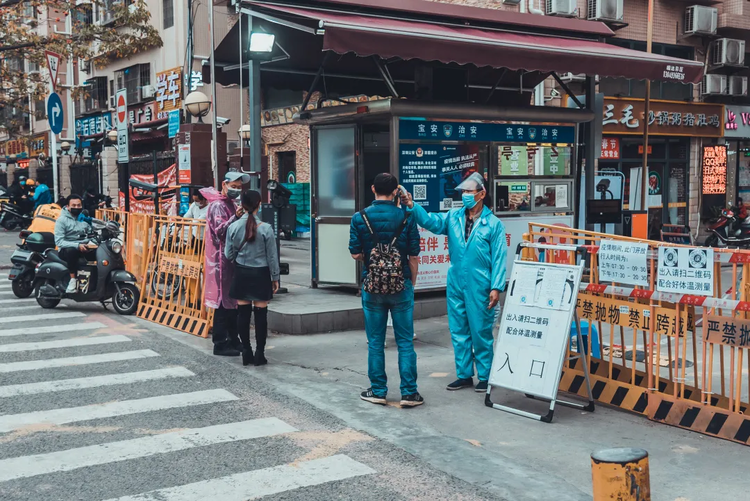
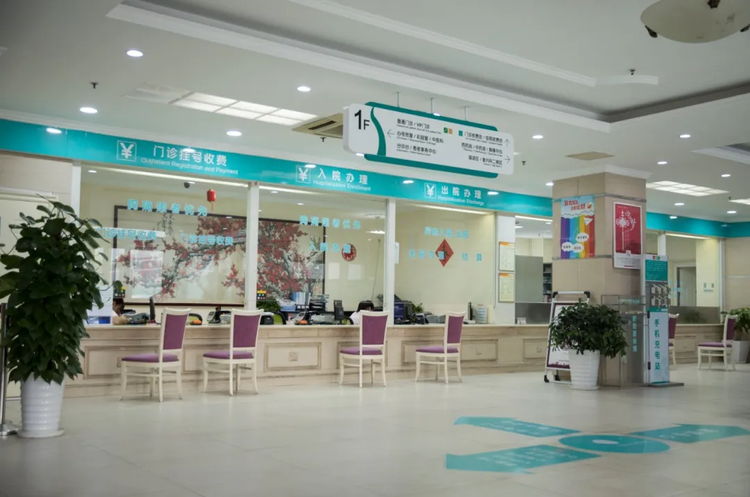
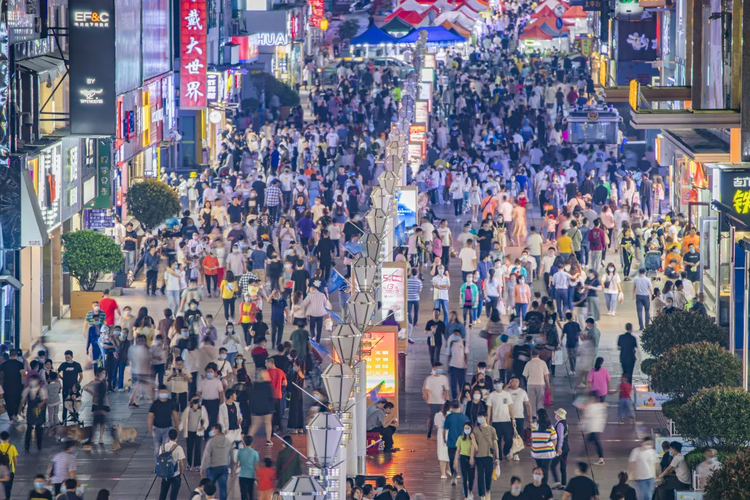
The development of science and technology will boost the urban construction after the pandemic. Pan Fang, Vice President of the Tsinghua Tongheng Urban Planning and Design Institute, and Liu Jiayan, Associate Professor of School of Architecture in Tsinghua University, thought that it is important for us to build an urban emergency system and a safe and resilient city when we use smart technology. For example, we should prioritize the construction of children-friendly communities and senior-citizen-friendly communities, and highlight configuration of different levels in medical treatment. They also mentioned that we should combine urban examination with the community planner system, which could jointly improve urban planning.
3 Urban Planning from Humanism: Sustainable Urban Development
It is necessary to establish sustainable cities and communities which are safe and resilient after the pandemic. From humanism, the pandemic has also affected a city's cultural soft power, industrial structure and cultural regeneration. Duan Yanling, former anchor of CCTV News and current guest commentator, and Davos 2020 Chairperson of SDG Convergence Association, said that awareness and team spirit determined people's behavior. The construction of cultural soft power would be crucial long-term work. The sustainable development of a city means urban "regeneration". Daniel Christian Wahl, founder and director of Sustainability Consultancy Innovation Education, has always kept an eye on “renewable future” and practiced cultural regeneration. For him, people's behavior should be regionalized and localized in culture and eco-system. Human beings should exchange their information and enhance their cooperation in local culture and climate to revive the city. Zhang Hongwu, Director of Yellow River Research Center in Tsinghua University, and Zhang Jieping, Director of Center for Water Quality and Environmental Protection in the Middle Route of South to North Water Transfer, also thought that the concept of urban planning should be innovated by putting people first. As for concept innovation, May East, a fellow of United Nations Institute for Training and Research, advocated a mode in which people should listen to each other, the nature and the outside world. She thought the lesson taught by COVID-19 was that mankind should keep pace with the development of the world, which enabled creativity to flow through every corner of the planet.
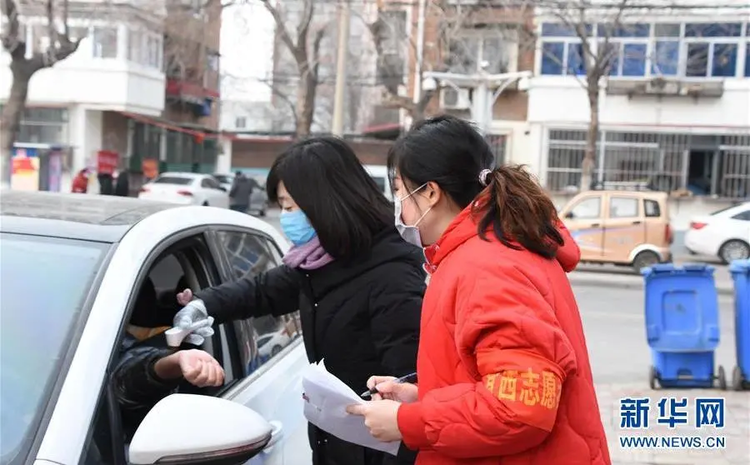


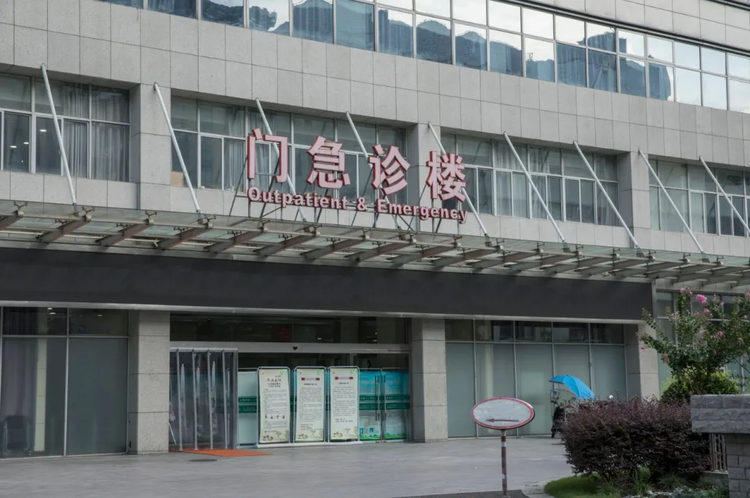
In addition, how does the pandemic influence city-industry integration in humanities? Chen Wei, Assistant Secretary-general of Committee of Academic Experts of Institute of Economic System and Management National Development and Reform Commission, said that localization and regionalization of industrial clusters became more and more prominent from the perspective of industrialization. Science and technology and cultural creativity became more and more important in boosting industrial development. He suggested that companies should seize the opportunities to adjust industrial structure, and fulfill people's need for a better life by designing and producing more products through various platforms, such as the Internet.
COVID-19 continues to sweep the world. In combating the outbreak, cities have gained effective experience and taken feasible measures in intensifying governance, improving services and changing styles of work. Citizens have gradually developed new healthy lifestyle. Emergency responses to the pandemic have become daily routines. As Xiao Lan has said in his opening speech, the three pillars of technology, education, and culture are of great value to the society's operation, production and everyday life. In short, the pandemic will pass, and there will be a turn for a better future.
Special announcement: This article only represents the views of the expert, not the views or positions of ICCSD.